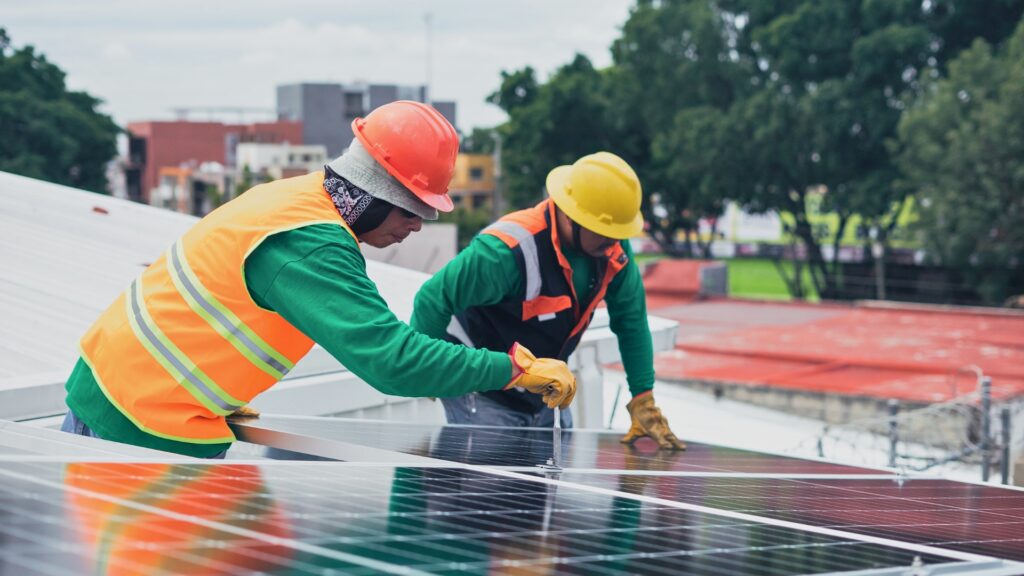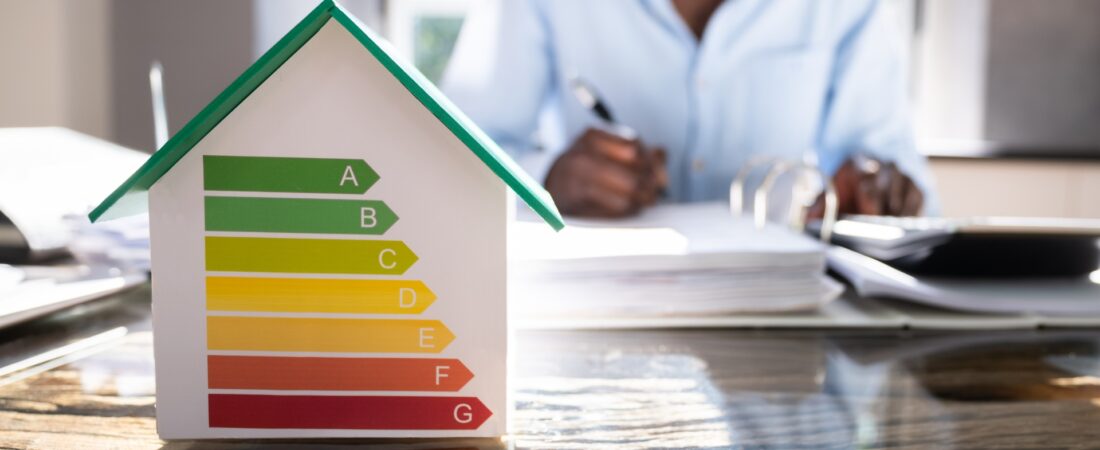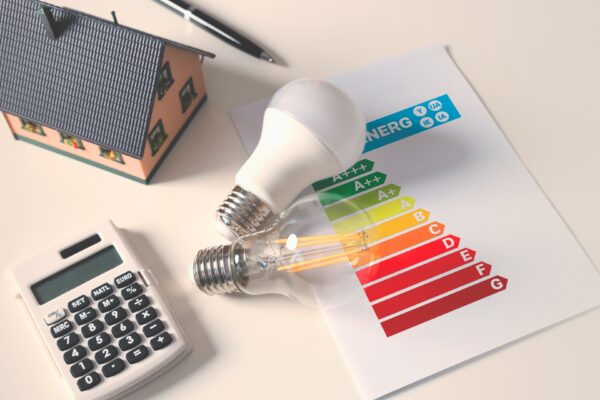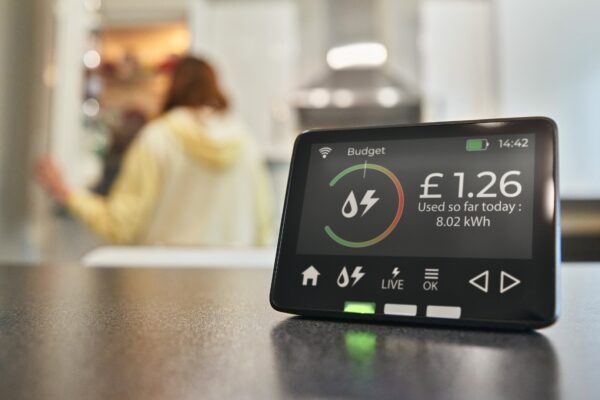Improving your property’s EPC rating isn’t just about meeting regulations; it’s a smart move that can increase its value and make it more appealing to potential tenants.
With the government launching a consultation on stricter energy efficiency standards and plans to raise the minimum EPC rating to ‘C’ for all privately rented properties by 2030, it’s something you’ll probably want to think about sooner rather than later.
To help, we’ve put together 11 practical tips that are easy to follow and can work for different types of properties and budgets.
- Energy efficient lighting
- Wall insulation and double glazing
- Simple but cost-effective measures
- Renewable energy sources
We’ve teamed up with the best energy assessors to bring you great service for a low price. Order EPC Now
Energy efficient lighting

Lighting does more than just brighten up spaces; it can play an important role in making your property more energy-efficient and trimming those hefty energy bills for your tenants.
LED bulbs: Swapping out traditional bulbs with LED alternatives can significantly slash energy usage, particularly in larger properties that require more lighting on those short, gloomy winter days.
Natural lighting: Taking advantage of natural light can be challenging in some parts of the UK, but there are ways to make the most of it, even in small measures. Best practices range from using light, reflective paint on walls and ceilings to leaving curtains or blinds open during daylight hours.
Motion sensors: By ensuring lights are only ‘on’ when necessary, motion sensors can significantly cut down on wasted energy. It’s best to install them in areas where they are most useful but least intrusive, for example, in common spaces like hallways, corridors, and outdoor entryways rather than in bedrooms or bathrooms.
Wall insulation and double glazing

The better your property is at retaining heat, the less energy it will use to maintain a comfortable temperature indoors – a quality that greatly enhances its appeal.
Wall and loft insulation: Think of insulation as your property’s superhero suit. Good loft and cavity wall insulation acts like a powerful shield, preventing heat from escaping your home during the winter but also keeping it out during the summer.
Double glazing: Swapping out old single-glazed windows for double or even triple-glazed ones can also make a big difference in heat retention, lowering your rental property’s energy consumption.
You might also be interested in…
- Pets in Rental Properties: What Every Landlord Should Know
- Understanding Leasehold Reforms in 2026
- What the New Decent Homes Standard Means for the Private Rented Sector
- How to Increase the Rent by Serving a Section 13 Notice
- How to Serve a Section 21 Notice to Tenants
Simple but cost-effective measures

Small changes, like installing thermostatic radiator valves, can pack a big punch when it comes to energy efficiency. Every little bit counts, even if it seems like a no-brainer.
Radiator upgrades: Radiator reflectors help reduce heat loss by bouncing warmth back into rooms and preventing it from escaping through the walls. Plus, thermostatic radiator valves offer precise temperature control in each room, so you don’t waste heat where it’s not needed.
Draught-proofing: Simply sealing gaps around windows and doors can put a stop to heat loss, ensuring rooms stay comfortably warm without straining your heating system.
Modern heating systems: Upgrading to newer boilers and heating systems not only heats your property more efficiently but is also a rather simple way to boost its EPC rating.
OpenRent is the cheapest and best way to advertise your rental property on the UK’s major property websites. Visit OpenRent
Renewable energy sources

Adopting renewable energy sources may seem like a big move. Still, with the proper drive and resources, it won’t just contribute to a more sustainable future but also significantly boost your property’s value.
Solar panels: By using solar energy to power your property’s electrical systems, you can reduce your reliance on conventional energy sources. This decrease in energy consumption will be reflected positively in your EPC rating.
Smart home technology: Smart thermostats, lighting controls, and energy monitoring systems can help you identify areas where energy is being wasted and make adjustments accordingly.
Ground source heat pumps: GSHPs are known for their high efficiency, as they typically provide around three to four units of heat for every unit of electricity consumed. There are also grants available for landlords in England and Wales, offering up to £7,500 towards the cost of a heat pump through the Boiler Upgrade Scheme (BUS).



